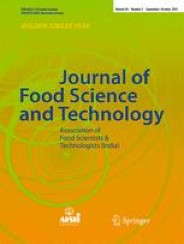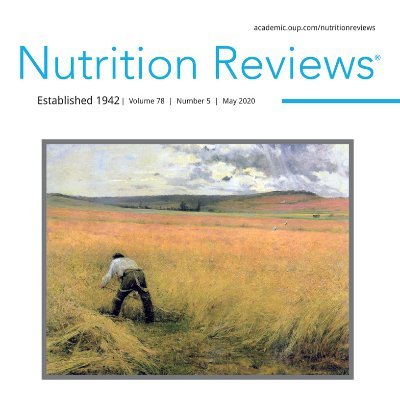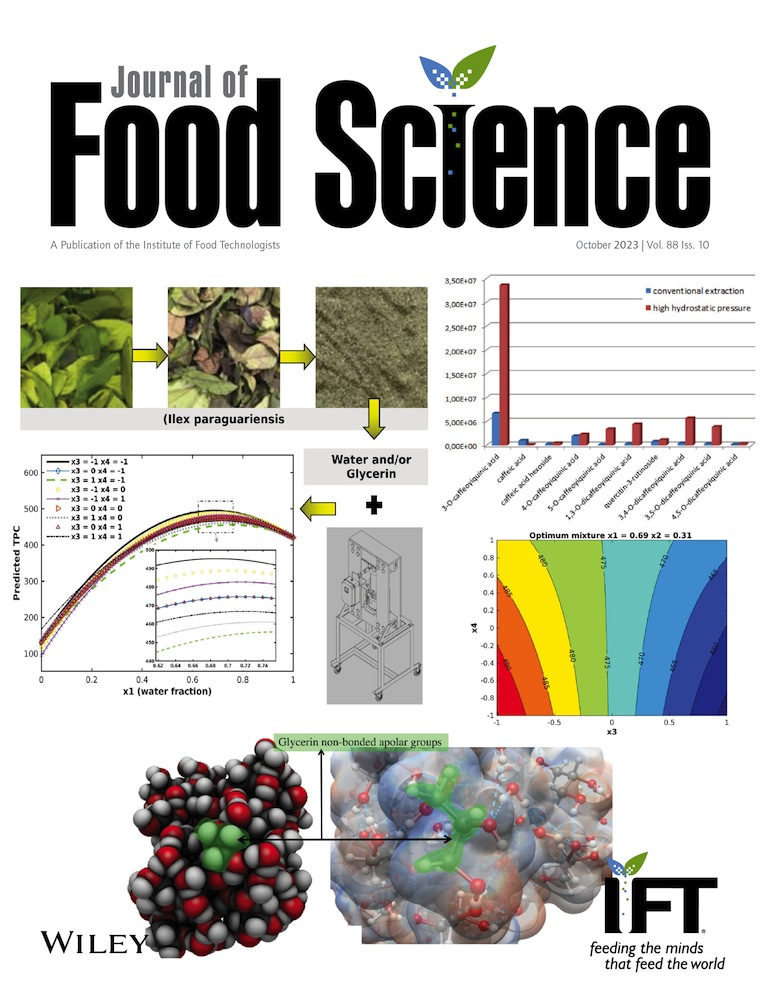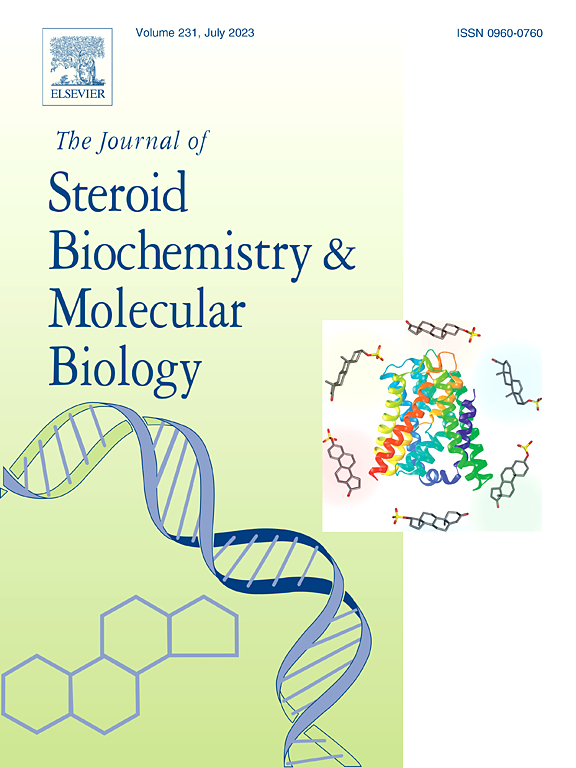Polyunsaturated Fatty Acids
How to submit an article:
- Registered users can submit any published journal article that has a unique DOI (Digital Object Identifier) name or link to Research Hub.
- For example, you can paste the full DOI link:
https://doi.org/10.1109/5.771073or just the DOI name:10.1109/5.771073into the field above and click submit. - The person who is first to submit a valid article to Research Hub will forever be credited for it, and every article submission earns you +6 Research Points.
Related Topics
Published research studies are articles that present the findings of original research that has undergone a peer-review process and has been made publicly available in scholarly journals, books or other media.

Significance of long-chain polyunsaturated fatty acids (PUFAs) for the development and behaviour of children
2023 Aug 12 European Journal of Pediatrics Schuchardt JP, Huss M, Stauss-Grabo M, Hahn A
Polyunsaturated fatty acids are of central importance for the development and functioning of the brain and nervous system, especially during childhood development. An adequate supply of long-chain ω-3 fatty acids, such as EPA and DHA in particular, is therefore indispensable for normal brain development during foetal growth in the cerebralisation phase, as well as for visual and cognitive functions in neonates.
Review Article Polyunsaturated Fatty Acids
Nutrition and its role in prevention and management of rheumatoid arthritis
2023 Jul Autoimmunity Reviews Nikiphorou E, Philippou E
Review Article Mediterranean Diet Sardine Omega-3 Fatty AcidsNutrition, particularly an anti-inflammatory Mediterranean diet supplemented with oily fish and omega-3 supplements, can potentially reduce inflammation and improve symptoms of rheumatoid arthritis.

Eating more sardines instead of fish oil supplementation: Beyond omega-3 polyunsaturated fatty acids, a matrix of nutrients with cardiovascular benefits
2023 Apr 14 Frontiers in Nutrition Santos HO, May TL, Bueno AA
Review Article Omega-3 Fatty Acids Cholesterol High Blood Pressure Cardiovascular Disease Metabolic Syndrome Sardine Type 2 DiabetesSardines, being an affordable source of Omega-3 and other cardioprotective nutrients, can potentially reduce the need for Omega-3 supplementation and manage cardiometabolic diseases.

Variations in nutritional quality and fatty acids composition of sardine (Sardina pilchardus) during canning process in grape seed and olive oils
2022 Aug 31 Journal of Food Science and Technology Bouriga N, Rjiba Bahri W, Mili S, Massoudi S, Quignard JP, Trabelsi M
Experimental Study Grape Seed Oil SardineUsing grape seed oil in the sardine canning process enhances the lipid nutritional quality and increases the fat, protein, and ash contents.

Potential Role of Omega-3 Polyunsaturated Fatty Acids in Pediatric Food Allergy
2021 Dec 29 Nutrients Sartorio MUA, Pendezza E, Coppola S, Paparo L, D’Auria E, Zuccotti GV, et al.
Recent evidence suggests an imbalance in the ω-3:ω-6 ratio due to increased intake of ω-6, especially in westernized diets. The critical age groups, such as infants, toddlers, young children, pregnant/lactating women, and fish-allergic patients, may have inadequate ω-3 intake. Preclinical studies with PUFAs supplementation show promising effects in suppressing allergic responses, but clinical study results are conflicting regarding timing, dosages, and the most likely beneficiaries. The review emphasizes the need for more data on the effects of ω-3 PUFAs supplementation in both the general and food-allergic populations.
Review Article Children's Health Food AllergyResearch insights are moderated by the Research Hub team and offer an at-a-glance overview of interesting research findings.

2023 Autoimmunity Reviews
Nutrition, particularly an anti-inflammatory Mediterranean diet supplemented with oily fish and omega-3 supplements, can potentially reduce inflammation and improve symptoms of rheumatoid arthritis.
Review Article Mediterranean Diet Omega-3 Fatty Acids Sardine
Nutrition and its role in prevention and management of rheumatoid arthritis
Nikiphorou E, Philippou E

2023 Frontiers in Nutrition
Sardines, being an affordable source of Omega-3 and other cardioprotective nutrients, can potentially reduce the need for Omega-3 supplementation and manage cardiometabolic diseases.
Review Article Cardiovascular Disease Cholesterol High Blood Pressure Metabolic Syndrome Omega-3 Fatty Acids
Eating more sardines instead of fish oil supplementation: Beyond omega-3 polyunsaturated fatty acids, a matrix of nutrients with cardiovascular benefits
Santos HO, May TL, Bueno AA

2022 Journal of Food Science and Technology
Using grape seed oil in the sardine canning process enhances the lipid nutritional quality and increases the fat, protein, and ash contents.
Experimental Study Grape Seed Oil Sardine
Variations in nutritional quality and fatty acids composition of sardine (Sardina pilchardus) during canning process in grape seed and olive oils
Bouriga N, Rjiba Bahri W, Mili S, Massoudi S, Quignard JP, Trabelsi M

2020 Nutrition Reviews
High doses of omega-3 fatty acids, Vitamin D supplementation, and dietary sodium restriction showed significant improvement in reducing rheumatoid arthritis symptoms.
Systematic Review Omega-3 Fatty Acids Rheumatoid Arthritis Vitamin D
Rheumatoid arthritis and dietary interventions: systematic review of clinical trials
Philippou E, Petersson SD, Rodomar C, Nikiphorou E

2019 Nutrients
Polyunsaturated fatty acids treatment shows improved outcomes for patients with nonspecific typical dry eye disease, in particular as a short-term intervention.
Meta-Analysis Dry Eye
Effects of Polyunsaturated Fatty Acids on Nonspecific Typical Dry Eye Disease: A Systematic Review and Meta-Analysis of Randomized Clinical Trials
Chi SC, Tuan HI, Kang YN
Review Articles
Review articles summarise and critically evaluate the current state of research on a specific topic or field by synthesising multiple primary research studies.

Significance of long-chain polyunsaturated fatty acids (PUFAs) for the development and behaviour of children
2023 Aug 12 European Journal of Pediatrics Schuchardt JP, Huss M, Stauss-Grabo M, Hahn A
Polyunsaturated fatty acids are of central importance for the development and functioning of the brain and nervous system, especially during childhood development. An adequate supply of long-chain ω-3 fatty acids, such as EPA and DHA in particular, is therefore indispensable for normal brain development during foetal growth in the cerebralisation phase, as well as for visual and cognitive functions in neonates.
Review Article Polyunsaturated Fatty Acids
Nutrition and its role in prevention and management of rheumatoid arthritis
2023 Jul Autoimmunity Reviews Nikiphorou E, Philippou E
Review Article Mediterranean Diet Sardine Omega-3 Fatty AcidsNutrition, particularly an anti-inflammatory Mediterranean diet supplemented with oily fish and omega-3 supplements, can potentially reduce inflammation and improve symptoms of rheumatoid arthritis.

Eating more sardines instead of fish oil supplementation: Beyond omega-3 polyunsaturated fatty acids, a matrix of nutrients with cardiovascular benefits
2023 Apr 14 Frontiers in Nutrition Santos HO, May TL, Bueno AA
Review Article Omega-3 Fatty Acids Cholesterol High Blood Pressure Cardiovascular Disease Metabolic Syndrome Sardine Type 2 DiabetesSardines, being an affordable source of Omega-3 and other cardioprotective nutrients, can potentially reduce the need for Omega-3 supplementation and manage cardiometabolic diseases.
An excellent review article highlighting the benefits of this very underappreciated yet highly nutritious fish. For example, the calcium content in 100 g of sardines is equivalent to the amount found in ~ 400 ml of milk (38% of the recommended dietary allowance). Sardines also contain a considerable amount of iron (2.9 mg/100 g) comparable to that of meat and higher than other commonly consumed types of fish. —Jinnan C 20 Oct 2023

Potential Role of Omega-3 Polyunsaturated Fatty Acids in Pediatric Food Allergy
2021 Dec 29 Nutrients Sartorio MUA, Pendezza E, Coppola S, Paparo L, D’Auria E, Zuccotti GV, et al.
Recent evidence suggests an imbalance in the ω-3:ω-6 ratio due to increased intake of ω-6, especially in westernized diets. The critical age groups, such as infants, toddlers, young children, pregnant/lactating women, and fish-allergic patients, may have inadequate ω-3 intake. Preclinical studies with PUFAs supplementation show promising effects in suppressing allergic responses, but clinical study results are conflicting regarding timing, dosages, and the most likely beneficiaries. The review emphasizes the need for more data on the effects of ω-3 PUFAs supplementation in both the general and food-allergic populations.
Review Article Children's Health Food Allergy
Beneficial Outcomes of Omega-6 and Omega-3 Polyunsaturated Fatty Acids on Human Health: An Update for 2021
2021 Jul 15 Nutrients Djuricic I, Calder PC
Higher intakes of omega-3 PUFAs, particularly EPA and DHA, are associated with a lower incidence of chronic diseases characterized by elevated inflammation, including CVDs, and intervention trials using EPA + DHA indicate a benefit on CVD mortality.
Cohort Study Systematic Review Oxidative Stress Inflammation Omega-3 Fatty Acids Cardiovascular DiseaseClinical Trials
Clinical trials are research studies that involve people and are conducted to evaluate the safety and efficacy of new treatments or interventions, such as drugs, medical devices, or behavioural therapies.
Study Protocols
Published study protocols are detailed plans that outline the objectives, methodology, statistical analyses, and organisation of a research study that have been made publicly available for others to review and use as a reference.
Presentation Slides

Review Article
Nutrition, particularly an anti-inflammatory Mediterranean diet supplemented with oily fish and omega-3 supplements, can potentially reduce inflammation and improve symptoms of rheumatoid arthritis.
Nikiphorou E, Philippou E

Review Article
Sardines, being an affordable source of Omega-3 and other cardioprotective nutrients, can potentially reduce the need for Omega-3 supplementation and manage cardiometabolic diseases.
Santos HO, May TL, Bueno AA

Experimental Study
Using grape seed oil in the sardine canning process enhances the lipid nutritional quality and increases the fat, protein, and ash contents.
Bouriga N, Rjiba Bahri W, Mili S, Massoudi S, Quignard JP, Trabelsi M

Systematic Review
High doses of omega-3 fatty acids, Vitamin D supplementation, and dietary sodium restriction showed significant improvement in reducing rheumatoid arthritis symptoms.
Philippou E, Petersson SD, Rodomar C, Nikiphorou E

Meta-Analysis
Polyunsaturated fatty acids treatment shows improved outcomes for patients with nonspecific typical dry eye disease, in particular as a short-term intervention.
Chi SC, Tuan HI, Kang YN

Clinical Study
Adding fresh herbs like parsley and chives to air-fried sardines reduces the levels of harmful cholesterol oxidation products formed during cooking.
Ferreira FS, Sampaio GR, Keller LM, Sawaya ACHF, Chávez DWH, Torres EAFS, Saldanha T

Practice Guideline
Long-chain omega-3 polyunsaturated fatty acids have various health benefits for postmenopausal women including reducing triglycerides and improving depression and psychotic symptoms.
Sánchez-Borrego R, von Schacky C, Osorio MJA, Llaneza P, Pinto X, Losa F, Navarro MC, Lubián D, Mendoza N
Executive Summary
Write an executive summary in the form of a blog article on the topic of "Research into Chinese medicine treatment for Polyunsaturated Fatty Acids" summarising the research below and using language that can be easily understood by patients and avoiding medical jargon using a professional and caring tone of voice.
Write an executive summary in the form of a blog article on the topic of "Researched Chinese medicine treatments for Polyunsaturated Fatty Acids" summarising the research below in an objective and easy to understand way, and using language that can be easily understood by patients. Group the article into Chinese medicine treatments first, followed by nutrition and other treatments. Avoid using medical jargon and use a professional and caring tone of voice.
Write me a concise but easy to understand executive summary on the topic of "Chinese medicine treatments for Polyunsaturated Fatty Acids" based on the following research that I will give you. Your summary should be 2 paragraphs long in Australian English spelling and include references to the studies.
A Review Article published in 2023 in the journal Autoimmunity Reviews found that Nutrition, particularly an anti-inflammatory Mediterranean diet supplemented with oily fish and omega-3 supplements, can potentially reduce inflammation and improve symptoms of rheumatoid arthritis. The review examines evidence indicating a possible connection between nutrition and the risk and management of rheumatoid arthritis, an autoimmune disease having an immune-inflammatory response. The impact of different food types was considered, including pro-inflammatory and anti-inflammatory foods. Specifically, the research highlights the effectiveness of a Mediterranean diet, rich in fish and supplemented with omega-3 polyunsaturated fatty acids, in reducing inflammation and oxidation. Other factors such as herbs and spices, beverages, vitamin D, and probiotics were also taken into account. The research emphasizes the direct and indirect role of nutrition through the management of co-morbidity. The disease activity was observed to improve with dietary changes, particularly a propensity to reduce inflammation, oxidation, and beneficial effects on gut microbiota. An anti-inflammatory Mediterranean diet, supplemented with consumption of oily fish at least twice a week, and daily intake of omega-3 polyunsaturated fatty acid supplements of 2 g, has been recommended. The study also highlights the importance of rheumatologists working closely with registered dietitians to support patients in managing a well-balanced diet according to their individual needs.
A Review Article published in 2023 in the journal Frontiers in Nutrition found that Sardines, being an affordable source of Omega-3 and other cardioprotective nutrients, can potentially reduce the need for Omega-3 supplementation and manage cardiometabolic diseases. The abstract primarily acknowledges the importance of Omega-3 polyunsaturated fatty acids with respect to managing diseases related to heart health and metabolism, for instance, type 2 diabetes, hypertension, hypertriglyceridaemia, and fatty liver disease. However, these fatty acids are not the sole beneficial component of sardines. Minerals including but not limited to calcium, potassium, and magnesium as well as substances like taurine and arginine found in sardines have a significant role in controlling mild inflammation and oxidative stress which are usually present in cardiovascular diseases and hemodynamic dysfunction. The results discussed in the abstract suggest a positive correlation between consumption of sardines and potential cardiometabolic benefits. By considering the dose-response relationship effects, a pragmatic approach towards consumption of nutrients was suggested. The intake of sardines was seen not only as a means of Omega-3 supplementation but also as a comprehensive approach to enhancing cardiovascular health. The abstract concludes with an emphasis on the many beneficial nutrients found in sardines besides Omega-3, underlining the need to shift the focus from synthetic supplementation to natural dietary improvement.
A Experimental Study published in 2022 in the journal Journal of Food Science and Technology found that Using grape seed oil in the sardine canning process enhances the lipid nutritional quality and increases the fat, protein, and ash contents. The researchers employed grape seed oil (GSO) in the canning process of sardines, comparing its effects on the nutritional quality of the canned fish to that of the traditional olive oil (OO). The assessment focused on the quantities of polyphenols, flavonoids, and non flavonoids present in both the GSO and OO, while also considering the levels of polyunsaturated fatty acids (PUFA) specifically linoleic acid in the GSO. The fat, protein, and ash content in the canned sardines were also tracked over a period of 90 days. In the results discussion, it was observed that GSO contained significantly higher levels of polyphenols, flavonoids, and non flavonoids than OO. Additionally, GSO was rich in PUFA, particularly linoleic acid. Following the canning process, canned sardines preserved using GSO demonstrated a significant increase in protein, fat, and ash content. Notably, the use of both GSO and OO resulted in a decrease in both atherogenic and thrombogenic indices to less than 1, implying improved lipid nutritional quality. Critically, levels of thiobarbituric acid and Total volatile base nitrogen remained below critical limits.
A Systematic Review published in 2020 in the journal Nutrition Reviews found that High doses of omega-3 fatty acids, Vitamin D supplementation, and dietary sodium restriction showed significant improvement in reducing rheumatoid arthritis symptoms. The study method involved conducting a systematic review, with all methods prespecified, in line with the Preferred Reporting Items for Systematic Reviews and Meta-Analyses guidelines. Relevant articles were found on Medline and Embase. Data were extracted from these articles by two independent reviewers, eventually identifying a total of 70 human studies that fit the scope of the research. The results indicated that the administration of omega-3 polyunsaturated fatty acids in high doses led to a decrease in rheumatoid arthritis disease activity, as well reduced failure rates of pharmacotherapy. Also, supplementing with Vitamin D and dietary sodium restriction had beneficial effects on some rheumatoid arthritis outcomes. Fasting resulted in significant but brief subjective improvements. Whilst the Mediterranean diet showed improvements in some rheumatoid arthritis disease activity measures, the results from vegetarian, elimination, peptide, or elemental diets implied that the responses are very individualized.
A Meta-Analysis published in 2019 in the journal Nutrients found that Polyunsaturated fatty acids treatment shows improved outcomes for patients with nonspecific typical dry eye disease, in particular as a short-term intervention. In this research, randomized clinical trials were searched from various databases, which included Cochrane Library, EMBASE, PubMed, and Web of Science, all investigating the impact of polyunsaturated fatty acids (PUFAs) on patients with nonspecific typical dry eye disease. The trials were conducted until March 2019. A total of thirteen eligible clinical trials with 1782 patients were eventually included. Specific data points such as tear breakup time, Schirmer's test, osmolarity, and ocular surface disease index were extracted by two independent reviewers. A pairwise meta-analysis was undertaken using means and standard deviations under a random-effects model for various outcomes. This research demonstrated that patients who received treatment solely with PUFAs showed significant improvements in specific observations such as tear breakup time, Schirmer's test scores, osmolarity, and ocular surface disease index when compared with patients who only received a placebo. However, it was noted that the positive effects of PUFAs on tear breakup time and ocular surface disease index scores decreased as the duration of treatment increased. Despite this, PUFAs were found to be effective for treating nonspecific typical dry eye disease, especially as a short-term treatment option and displayed few adverse events. The study therefore concluded that PUFA supplements could be beneficial to patients with nonspecific typical dry eye disease who are not using other types of eye medication concurrently.
A Clinical Study published in 2017 in the journal Journal of Food Science found that Adding fresh herbs like parsley and chives to air-fried sardines reduces the levels of harmful cholesterol oxidation products formed during cooking. To conduct this study, sardine fillets were air fried, a method considered healthier as it allows frying without oil. The research then revolved around the monitoring of two types of substances: cholesterol oxidation products (COPs), theorised to increase with the high heat, and essential polyunsaturated fatty acids (PUFAs), which typically decrease in such conditions. In the analysis of the results, it was observed that, indeed, cooking through air frying escalated the levels of COPs while diminishing that of essential PUFAs. The experiment further introduced fresh herbs, namely parsley, chives and a mix of both, owing to their properties as natural antioxidants. This addition was observed to lower the levels of COPs formed, indicating a healthier outcome. Specifically, air-fried sardines with 4% cheiro-verde (the mixed herbs) offered the best protection against lipid or fat oxidation.
A Practice Guideline published in 2017 in the journal Maturitas found that Long-chain omega-3 polyunsaturated fatty acids have various health benefits for postmenopausal women including reducing triglycerides and improving depression and psychotic symptoms. A panel of experienced experts from the Spanish Menopause Society embarked to establish a comprehensive set of recommendations for the intake of long-chain omega-3 polyunsaturated fatty acids by postmenopausal women. This was steered based on the best available evidence and research. It was especially noted that the consumption of these fatty acids, at doses higher than 3 grams per day, proved to significantly decrease the levels of triglycerides in the body. The results obtained from this study are promising and underline the potential health benefits of long-chain omega-3 polyunsaturated fatty acids for postmenopausal women. Alongside reducing triglyceride levels, they also contribute to antiarrhythmic effects, reduction in blood pressure, and improvements in depressive and psychotic symptoms. Furthermore, it was noted that their consumption does not increase the risk of cancer in these women. The potential of these fatty acids in providing relief from menopause symptoms and osteoporosis was also explored, yielding positive indications.
Moderation Tools
Topic
Sign In
Users not signed in are limited to viewing the 5 most recent items of content.

An excellent review article highlighting the benefits of this very underappreciated yet highly nutritious fish. For example, the calcium content in 100 g of sardines is equivalent to the amount found in ~ 400 ml of milk (38% of the recommended dietary allowance). Sardines also contain a considerable amount of iron (2.9 mg/100 g) comparable to that of meat and higher than other commonly consumed types of fish. —Jinnan C 20 Oct 2023